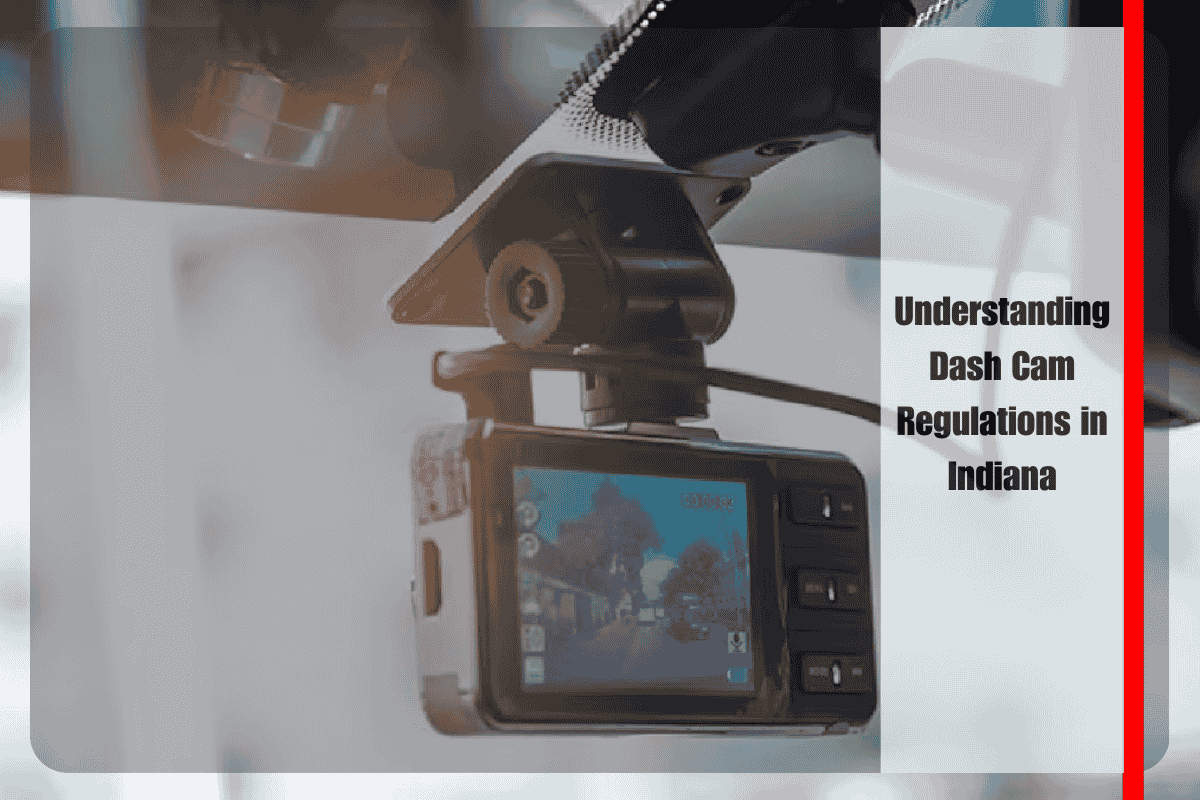Dash cams have become an essential tool for many drivers, offering peace of mind and valuable evidence in the event of accidents or disputes. However, before installing one in your vehicle, it’s important to understand the laws surrounding their use, especially in places like Indiana. While dash cams can provide vital video footage, there are certain rules regarding their use, privacy concerns, and how they can be used as evidence. This guide explains the dash cam regulations in Indiana and what drivers need to know to stay within the law.
Are Dash Cams Legal in Indiana?
Yes, dash cams are legal in Indiana. The state does not have specific laws that ban the use of dash cameras in vehicles, so drivers are free to install and use them. Dash cams are popular for capturing video footage while driving, especially in case of accidents or when dealing with law enforcement. However, there are certain factors that drivers must keep in mind when using dash cams in Indiana, particularly related to privacy and obstruction concerns.
Privacy Laws and Dash Cams
Indiana law has privacy provisions that could affect how dash cam footage is recorded and shared. The most important aspect to keep in mind is that Indiana is a one-party consent state. This means that if you are recording audio along with the video, you are allowed to do so as long as one party involved in the conversation consents to the recording. In practical terms, this means you can record conversations in your vehicle without the need for other parties to know or give consent, as long as you’re part of the conversation.
However, if your dash cam records audio in public places or while interacting with others outside your car (for example, with law enforcement or other drivers), it’s essential to ensure that the recordings do not violate privacy expectations. Recording private conversations without consent, especially outside of your vehicle, could lead to legal issues.
While dash cams are mostly used to record video, the recording of audio can become a gray area. Be mindful of any audio you capture, particularly when interacting with people who may have a reasonable expectation of privacy, as violating privacy laws could expose you to legal challenges.
Dash Cam Placement and Obstruction of View
Another important consideration when using a dash cam in Indiana is ensuring that the device does not obstruct your view while driving. The Indiana state law prohibits objects that block the driver’s view of the road, especially in critical areas like the windshield. To comply with this regulation, the dash cam should be mounted in a way that doesn’t obstruct the driver’s line of sight, such as near the rearview mirror or on the dashboard where it does not interfere with visibility.
If the dash cam is placed in a location that obstructs the driver’s view of the road or causes a hazard to safe driving, you may be subject to a fine or a traffic citation. Therefore, when installing a dash cam, it is crucial to place it in a way that does not violate state traffic laws.
Dash Cam Footage as Evidence in Indiana
One of the key advantages of using a dash cam is that the footage can be used as evidence in legal situations, such as insurance claims, accidents, or court cases. In Indiana, dash cam footage can be admitted as evidence in court, provided it is relevant to the case and meets the necessary legal standards. For example, if you are involved in a car accident and the dash cam captures the event, the video footage could serve as vital evidence to support your version of events.
However, there are rules governing the authenticity and admissibility of such footage. If dash cam footage is to be used in a legal setting, it may need to be verified for its accuracy and reliability. In some cases, the footage may be challenged, especially if there are concerns about tampering or if the video lacks clarity or important context. Therefore, it’s important that dash cam footage is kept in its original format and not altered in any way before being submitted as evidence.
Potential Legal Concerns with Dash Cams
While dash cams are generally legal, there are a few legal considerations drivers should keep in mind to avoid potential issues:
Recording Audio Without Consent: As mentioned earlier, Indiana is a one-party consent state, but that does not mean you can record audio without considering privacy. If your dash cam picks up conversations that should be private (such as when you are talking to someone outside the vehicle), you might run into legal trouble. If you plan on recording audio, it’s best to check the context of each situation.
Video Recording in Private Spaces: If your dash cam’s field of view extends to private property, like capturing images of people on their property while you are driving by, this could raise privacy concerns. It is always important to respect privacy rights and avoid capturing footage that may invade someone’s personal space or home.
Insurance and Liability: While dash cam footage is valuable for protecting yourself in accidents, keep in mind that insurance companies and courts may have their own procedures for accepting footage as evidence. Some insurers may have specific rules or guidelines for how dash cam footage can be used when making claims.
Dash cams are legal to use in Indiana, and they can be a valuable tool for protecting yourself and providing evidence in legal situations. However, it’s important to follow specific guidelines to ensure you comply with state laws, particularly those relating to privacy and obstruction of view. By placing your dash cam in a way that doesn’t block your vision, respecting privacy laws, and avoiding audio recording without consent, you can enjoy the benefits of your dash cam while staying within the bounds of Indiana’s legal regulations.
Sources
[1] https://www.ddpai.com/blog/dash-cam-laws/
[2] https://www.expertmarket.com/dash-cams/dash-cam-laws-by-state
[3] https://matrackinc.com/dash-cam-laws-by-states/
[4] https://www.reddit.com/r/Indiana/comments/e5w90z/dash_cam_laws/
[5] https://www.enjuris.com/blog/resources/dash-cam-laws-by-state/












